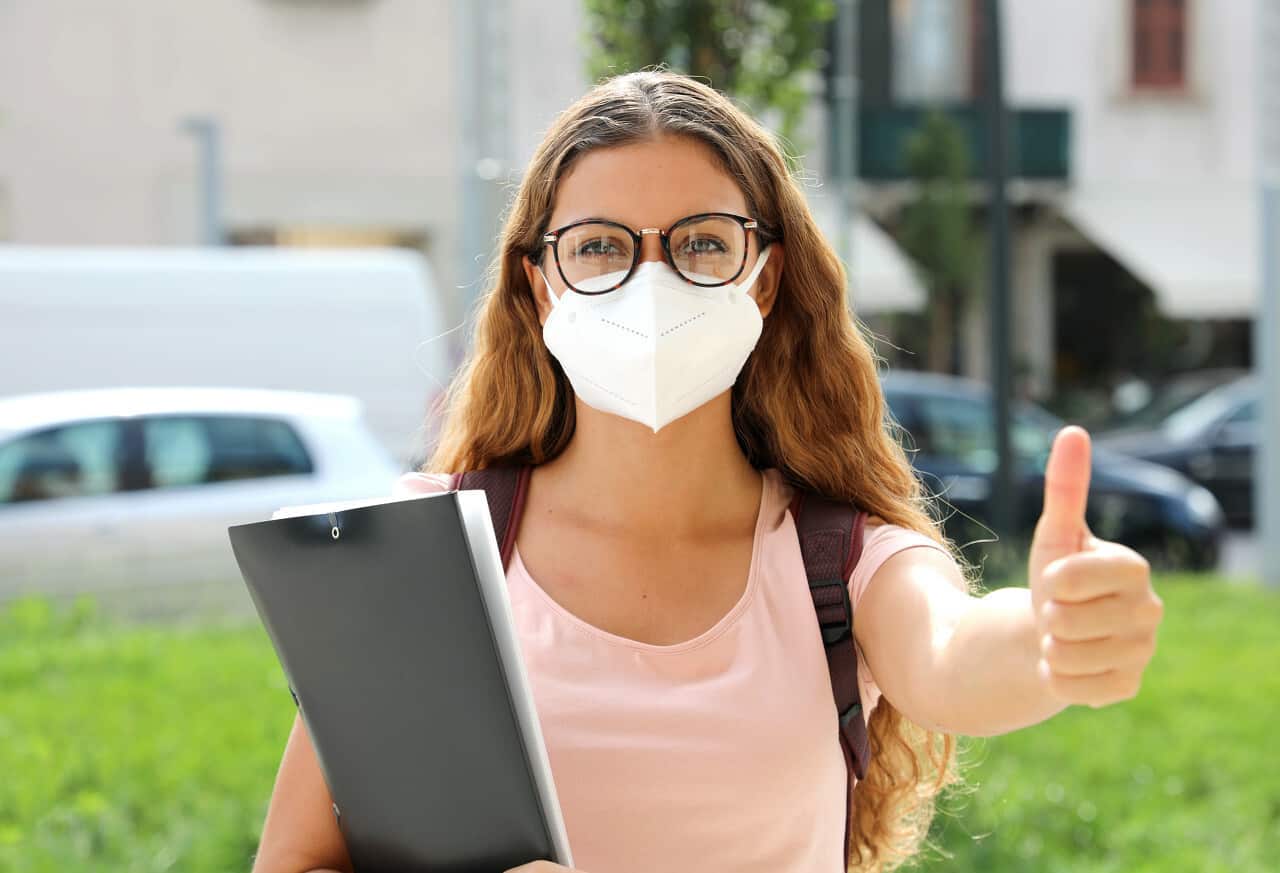Could COVID-19 be protected by wearing eyeglasses?

Could COVID-19 be protected by wearing eyeglasses?
How does COVID-19 spread?
When an infected individual cough, sneezes, or talks, COVID-19 is transmitted by respiratory droplets. People may become infected by touching a contaminated surface and then touching their eyes, mouth, or nose.
According to a new study from Hubei Areas of the control/area of land in China, wearing eyeglasses may reduce your chances of catching the coronavirus. The results were published in the medical journal JAMA Eye-related medical care. But does this mean that everybody can shield their eyes from COVID-19?
When an infected person coughs or sneezes near your eye, or if you touch an infected object before touching your eye, the coronavirus will spread through your eyes.
KEY POINTS TO NOTE
- As the number of people infected with COVID-19 increases worldwide, it’s more important than ever to practice proper prevention and treatment.
- According to a small report, people who wear glasses could have a lower chance of contracting COVID-19.
- Can you start wearing glasses as a COVID-19 prevention method?
As the coronavirus spreads across various countries and locations worldwide, India has recently surpassed the United States as the second-worst affected country.
As the number of cases rises and lockdowns are lifted to restore normalcy to the economy and daily life, disease prevention and proper precautions has become even more critical. Hand and respiratory grooming, social distancing, and remaining at home until absolutely necessary are all examples of preventive strategies.
According to a small report, other variables may also play a role in lowering the risk of COVID-19. According to a small Chinese study, people who wear eyeglasses have a lower risk of contracting COVID-19 than those who do not.
The relationship between eyeglasses and coronavirus can exist.
It was discovered that 30 participants, or around 11%, wore glasses. However, only 5.8% of people used glasses for more than 8 hours a day, and this was due to myopia.
When comparing these findings to the general population, the researchers cited a 1985 survey that revealed that about 1/3 of the population had myopia and all wore glasses.
As a result, the researchers concluded that wearing glasses could minimize the risk of COVID-19 since even though a large population of people had myopia and wore glasses, only a small percentage of those people were admitted to the hospital because of COVID-19.
Glasses can serve as a reminder to avoid touching your eyes. It’s also possible that glasses act as a partial barrier, shielding eyes from a cough or sneezing splatter. Other than wearing glasses, several variables may account for the study’s findings.
It’s possible that, as opposed to people who don’t wear glasses, people who wear glasses are older and more likely to stay at home during a pandemic. Perhaps people in China who can afford glasses are less likely to contract the virus because they can afford to live in less congested areas.
Is it necessary to wear eye protection to avoid COVID-19?
Although there is some evidence that wearing eyeglasses can help protect against the disease, experts caution that it is too early to say that anyone can use them as a preventative measure.
More research and studies will be needed to determine if wearing glasses in public has any additional benefit in terms of keeping the virus at bay, particularly when people take other precautions like wearing a mask and social distancing. A few experts had previously recommended switching from contact lenses to glasses to reduce the risk of COVID-19.
People who wear glasses have a lower risk of COVID-19 infection because they touch their eyes less than people who do not wear glasses, which can help minimize the risk of the virus being transferred from hands and fingers to the eyes, where it can reach the body and cause infection.
Although it is still unclear if wearing glasses will substantially reduce the risk of COVID-19, it is recommended that you use all other COVID-19 prevention measures, such as avoiding touching your face.
